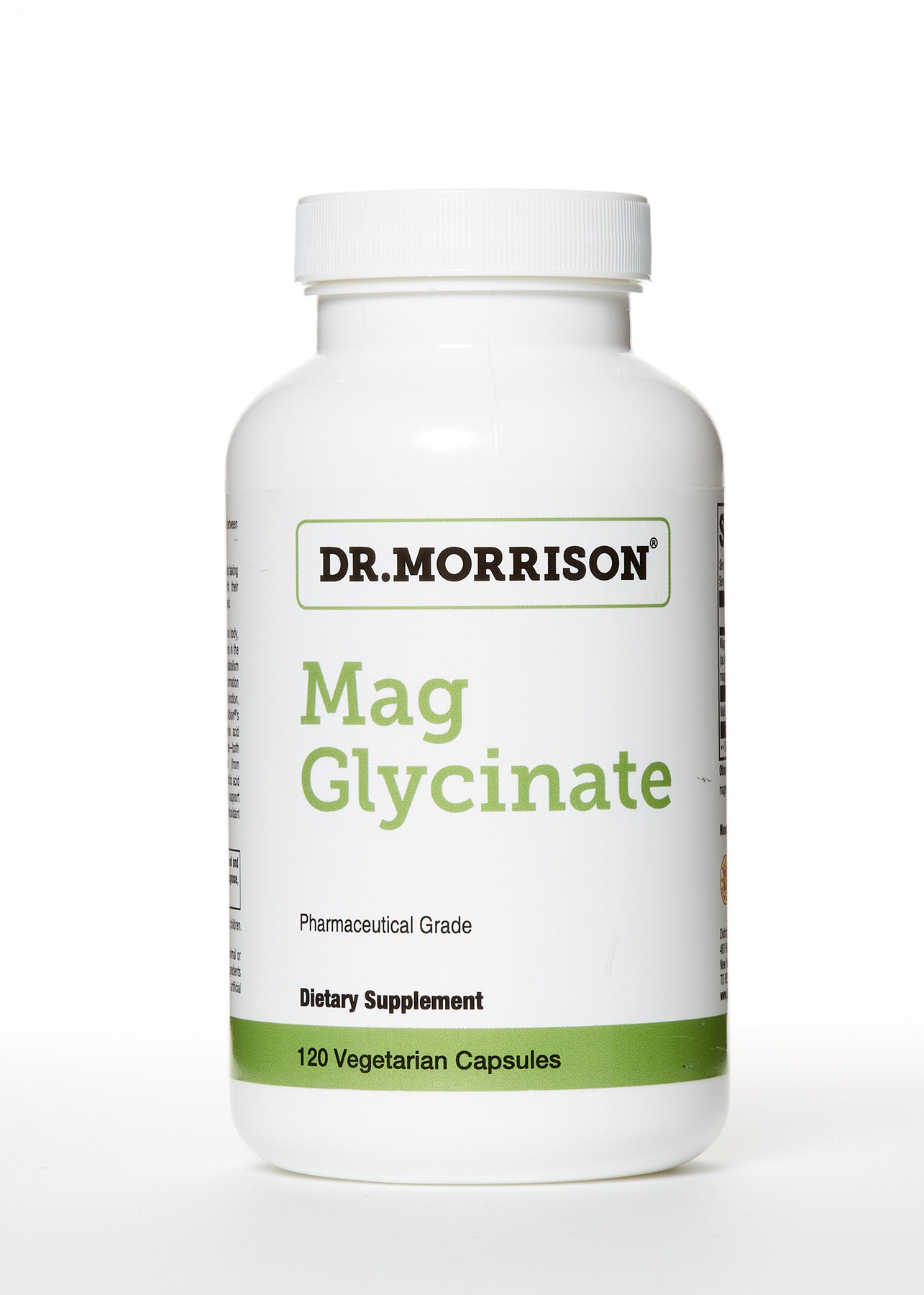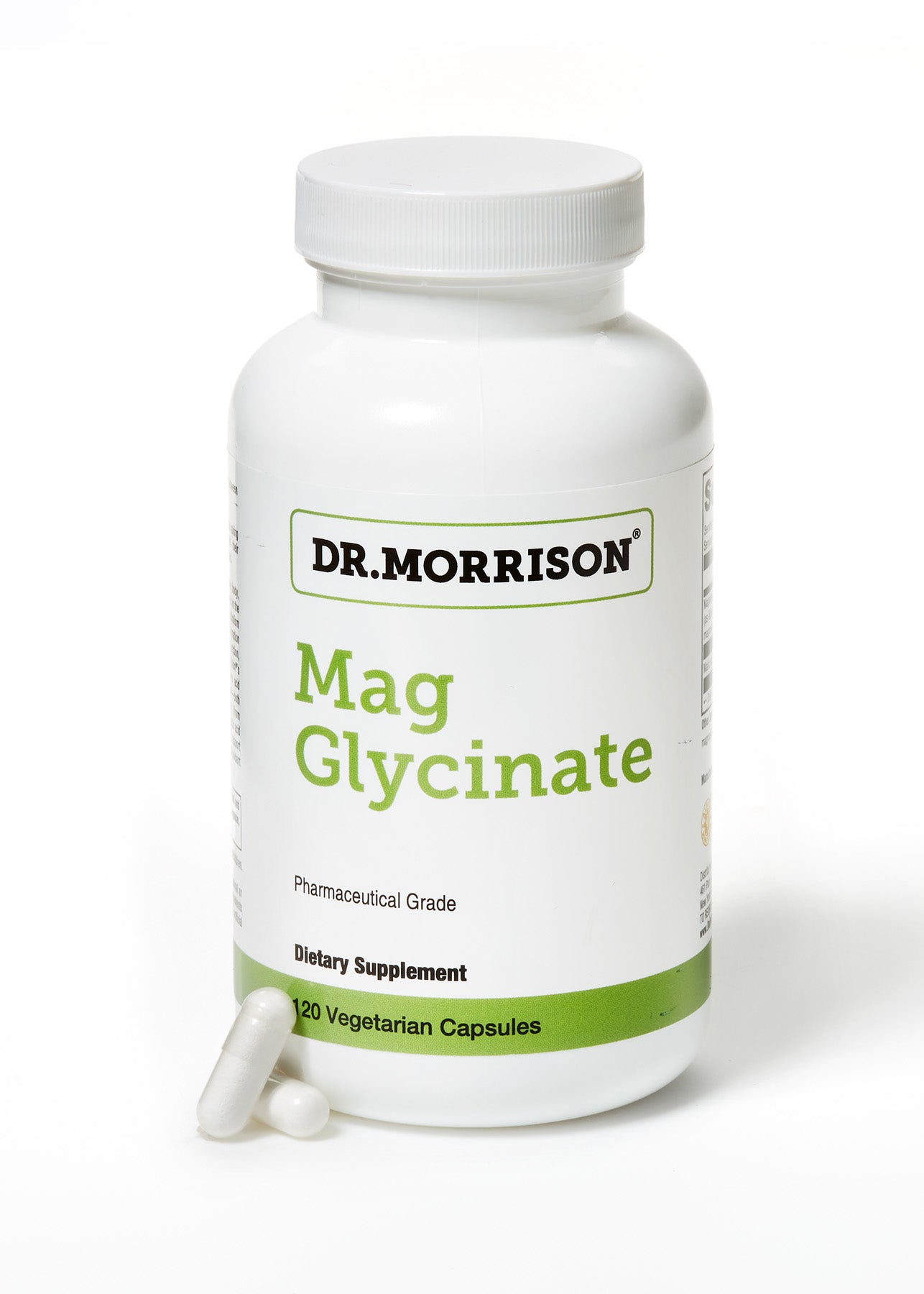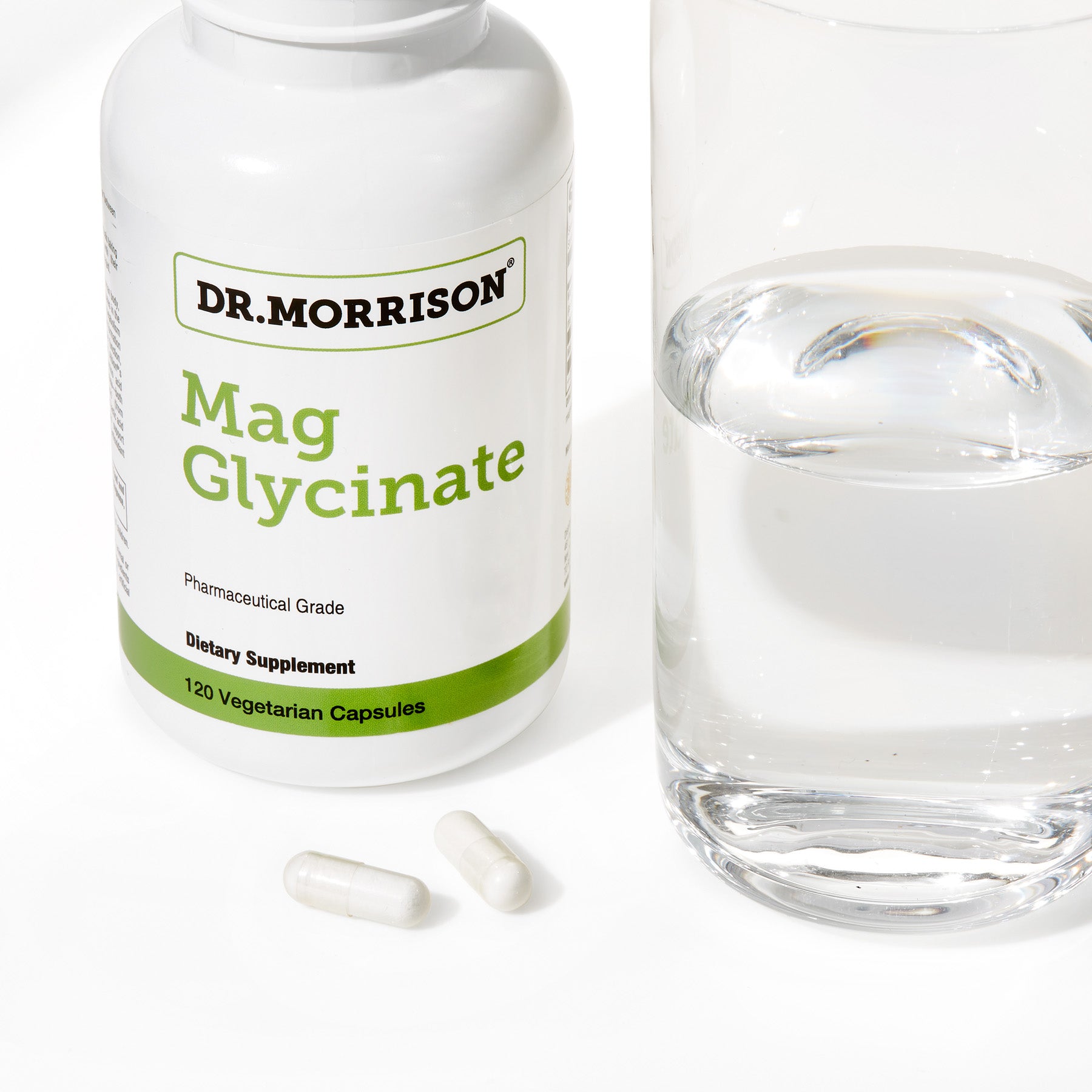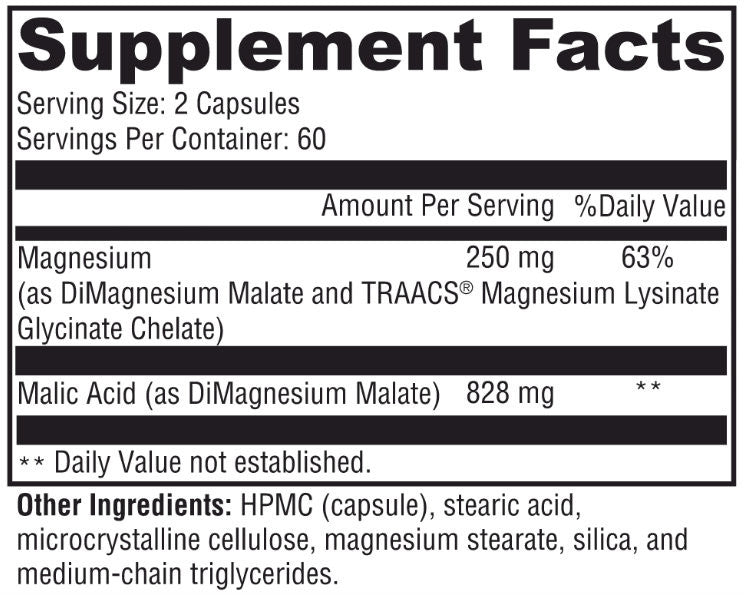Mag Glycinate
$ 42.00
Size: 120 Vegetarian Capsules
Highly Absorbable Chelated Magnesium for Whole Body Health
Please select all options.
Magnesium is the fourth most abundant mineral in the human body and plays a role in nearly every bodily system. There are over 300 enzymatic processes that require magnesium, including bone growth and maintenance, cellular energy production, muscle contraction, insulin signaling, and kidney filtration.
Highlights:
- Supports Heart Contraction and Relaxation of Arteries*
- Promotes a Relaxed Nervous System*
- Supports Healthy Muscle Function and Nerve Conduction*
- Promotes Bone Health and Calcium Balance*
- Supports Energy Production*
- Supports Healthy Glucose Metabolism*
- Supports Electrolyte Transport to Maintain Acid/Alkaline Balance*
- Promotes Glutathione Production and Antioxidant Status*
Many of us are magnesium-deficient due to low magnesium intake from dietary sources, rapid excretion of magnesium during stress, or magnesium depletion from sugar, alcohol, or certain drugs. Mag Glycinate provides two highly bioavailable, patented magnesium chelates for optimum absorption and cellular utilization.
Magnesium is an essential cofactor in both enzymatic steps of glutathione synthesis, and magnesium supplementation has been shown to support the glutathione redox system in clinical research.1 Magnesium is also one of the most critical nutrients for insulin-mediated glucose regulation.2 Magnesium is increasingly recognized to play a role in countless neurological conditions, including headache, concussion, and memory loss.3
*These statements have not been evaluated by the FDA and are not intended to treat or cure any disease.
Not all magnesium supplements are created equal. The type of chelated magnesium determines how much you actually absorb and use. Our unique blend of TRAACS® magnesium lysinate glycinate and a patented chelated di-magnesium malate provides superior bioavailability with a broad range of health benefits.
Additionally, malic acid (from di-magnesium malate) supports energy production and lactic acid clearance by participating in the Krebs cycle—the master mitochondrial power generator. The amino acid glycine, from glycinate, is one of the body’s primary relaxing neurotransmitters and forms an integral part of glutathione, the body’s most important antioxidant.
In our experience, the specialized formula in Mag Glycinate is the most effective way to get the whole-body benefits of magnesium for a busy and high-stress lifestyle!
Magnesium (as dimagnesium malate and magnesium lysinate glycinate) 250 mg
Other Ingredients: Capsule (hypromellose), hydroxypropyl cellulose, ascorbyl palmitate, microcrystalline cellulose, and silica.
FORMULATED TO EXCLUDE: Wheat, gluten, corn, yeast, soy, animal and dairy products, fish, shellfish, peanuts, tree nuts, egg, GMOs, artificial colors, artificial sweeteners, and artificial preservatives.
Take one to two capsules twice daily at or between meals, or as directed by your healthcare professional.
Caution: Consult your healthcare professional prior to use. Individuals taking medication should discuss potential interactions with their healthcare professional.
Effects of magnesium supplementation on the glutathione redox system in atopic asthmatic children
Objective: Our aim was to investigate the effects of 12-week oral magnesium (Mg) supplementation on the RBC redox system in stable, persistent, moderately asthmatic children (N = 40, 24 boys, 16 girls) aged 4-16 years in a randomized, double-blind, placebo-controlled study.
Design: Oxidized (GSSG) and reduced (GSH) glutathione, oxyhaemoglobin, methaemoglobin (metHb), hemichrome and bilirubin levels before and after treatment were determined, and GSH stability tests were performed.
Result: The GSH concentration was significantly higher in the Mg-treated than in the placebo-treated patients after the treatment period. There was a positive correlation between the decreased plasma metHb and hemichrome levels and the decreased plasma haemoglobin concentrations in the Mg-treated patients at the end of the study.
Conclusion: Mg in the given doses exerts antioxidant activity and influences the glutathione redox system.
Participation of Magnesium in the Secretion and Signaling Pathways of Insulin: an Updated Review
Several studies have demonstrated the participation of various minerals in mechanisms involving insulin. Magnesium, in particular, plays an important role in the secretion and action of this hormone. Therefore, this review aimed to examine the latest insights into the biochemical and molecular aspects of the participation of magnesium in insulin sensitivity. Magnesium plays a vital role in the activity of intracellular proteins involved in insulin secretion in β-pancreatic cells, such as glucokinase, ATPase, and protein kinase C. In addition, evidence suggests that this mineral participates directly in insulin sensitivity and signaling in peripheral tissues, acting in the phosphorylation of the receptor tyrosine kinase and the insulin receptor substrates 1, insulin receptor substrates 2, phosphatidylinositol 3-kinase, and protein kinase B, and indirectly by reducing oxidative stress and chronic low-grade inflammation, which also lead to insulin resistance. Thus, magnesium deficiency is associated with glucose intolerance, while magnesium supplementation stimulates insulin secretion in pancreatic cells and improves insulin sensitivity in peripheral tissues. However, studies must consider assess short- and long-term nutritional status of mineral before performing intervention, the relevance of the balance of other nutrients that influence hormone secretion and sensibility, and health status of the assessed population.





